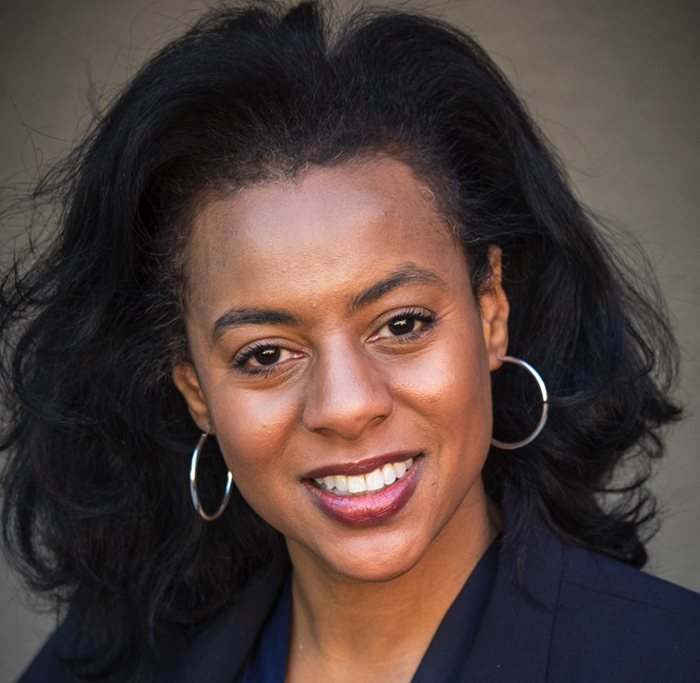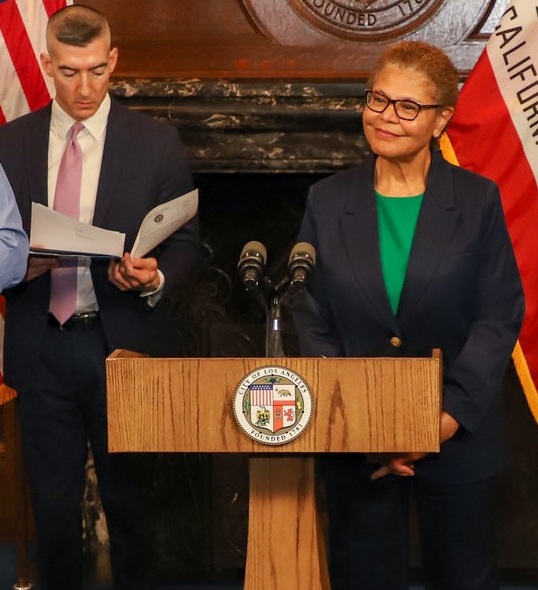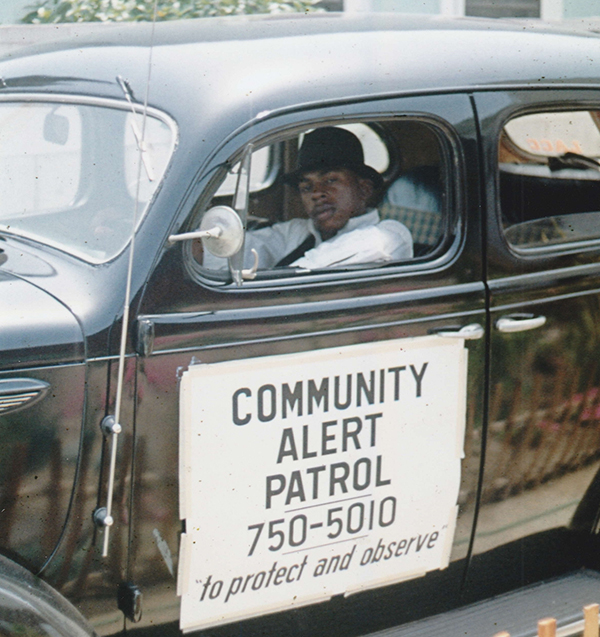By Darlene Donloe, Contributing Writer
One conversation with Capri Maddox and you can tell why Los Angeles Mayor Eric Garcetti nominated her, and the City Council confirmed her, as the executive director of the city’s newly formed Department of Civil and Human Rights.
In her executive director role, Maddox, who began her new assignment July 1, is charged with addressing systemic racism and bias in the areas of commerce, education, employment and housing by initiating and investigating complaints of discrimination, as well as enforcing the city’s civil and human rights laws.
Under her leadership, the department will combat hate crimes and level the playing field through partnerships with the Commission on the Status of Women, the Human Relations Commission and the Office of Racial Equity.
Throughout her career, Maddox, a lawyer, who has a bachelor of science in criminal justice and a master of science in public administration from Cal State Los Angeles and received her Juris Doctorate from Pepperdine University School of Law, has had to be focused, fierce and passionate each step of the way.
Contributing writer Darlene Donloe interviewed Maddox about her new role, how she couldn’t say “no” to Mayor Garcetti, her plans to help the city and how her 13-year-old son was instrumental in her decision to take the job.
DD: Given all that has happened in Los Angeles and the nation this year, is this the best of times or the worst of times to be taking on the role of executive director of the Department of Civil and Human Rights?
CM: I think as far as the best of times, worst of times scenario, this is the most challenging time to take on this assignment and the best time to take on this assignment. I want to be clear that we need to stand up for justice. When I got the call from the mayor, I could not say no when he and the Black Worker Center and the UCLA Labor Center asked me to step up. They were instrumental in creating the department. I could not say no when we are living through an epidemic of hatred and discrimination in our nation.
DD: Why are you the right person for this job?
CM: I had to think about that. I care about justice. My career has been about justice and equity. I want to make sure our communities are whole. I want to level the playing field. My experience shows that I’m entrenched in the community. I have always been a voice for communities in need. I am also the first COVID-19 equity officer in the country. In that space, we apply an equity lens to our response to the COVID equity crisis. We make sure we get information to communities in need, like the ones having spikes.
DD: If you do nothing else in your position, what do you want to accomplish?
CM: A few things. I want the department to combat hate, racism and discriminatory practices in our region. It can be done in a number of ways using anti-racist training. We have tools in our toolbox.
I want us to do this with community engagement events, to unify our communities. I want us to provide anti-bias training and I want us to use the tools as it relates to our discrimination enforcement tools.
I want to work on empowerment first. I want to level the playing field. I also want to be clear when I say the government has been part of the problem as it relates to racism with racial covenants, segregated schools and internment camps.
People have suffered a lot of inequities. I want to assist people in their quest for upward mobility. I want to talk about homeownership opportunities and housing opportunities. I want to talk about why African Americans and Latinos pay $500 million more every year in their mortgages compared to their counterparts with the same credit score.
DD: Have you ever had your civil rights violated?
CM: Yes, I didn’t know it at the time. In education, African-American girls are three times more likely to be suspended for doing the same offenses as their counterparts. I was one of those kids.
I was in third grade. I was grabbed by a teacher at an LAUSD school. He pulled my arm so hard, he pulled it out of its socket. It did pop back in. I kicked the teacher where it hurts.
It caused me to be suspended for three days. Also, when I went to a new school they were intent on putting me in special ed. I remember a guidance counselor wouldn’t allow me to go to recruiting meetings. She said I wasn’t college material.
I know for a fact it happened when I was looking for an apartment in the Palms area. I had to call Westside Fair Housing because it was extremely hard to rent in that area. At the last minute, I was able to get a place.
Ironically, I was working at the Los Angeles Housing Department when this happened to me. I had a master’s degree, good credit, and a full-time job. It was clearly about micro-aggressions and racial slights. You can’t educate, work or social status your way out of discriminatory practices. It doesn’t insulate you from hate and discrimination in America. Your color speaks before you do.
DD: You are a mother. What is your hope for your Black, teenage son?
CM: It’s painful. It’s past painful. Matter of fact, my son was online and someone told him that they hate Black people. He was just devastated. My son is dealing with hate and racism in middle school now.
When he was on his computer, I heard my son say, “Don’t say that, you’re a racist.” That happened today. My son can build a computer, and be selected out of 1,700 kids to be student of the week. He is in leadership with community engagement events. He’s a straight-A student.
But when he walks down the street, they see a 5-5 African American boy walking down the street. We have to have the talk. We told him, “If you’re entering our home and people assume you don’t live here, don’t reach for your keys or phone.”
It’s exhausting and it affects their mental health. I want to make sure things are better for my son as he grows. It’s one of the reasons I took the position. I’m able to see how people look at my son. My 9-year-old cute little boy’s smile went away when people started scooting away from him. To think he can work as hard as he does and as smart as he is and still face discrimination is painful. We have to stop this. We can’t go backward.











